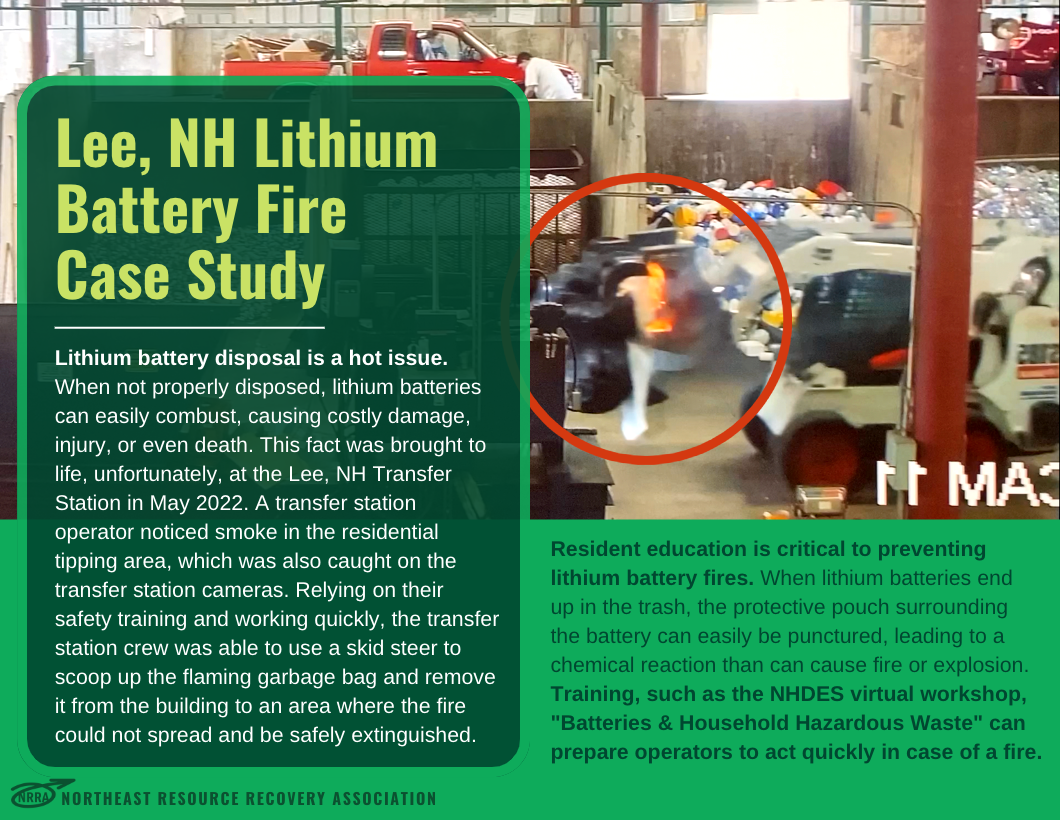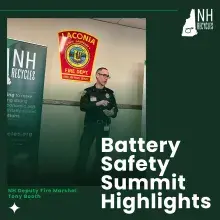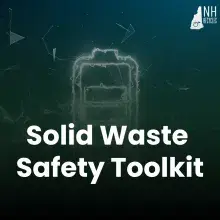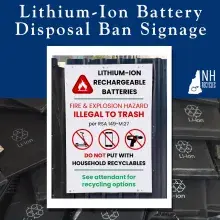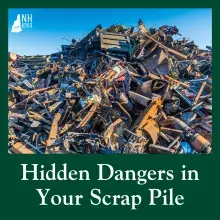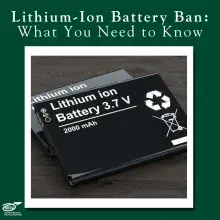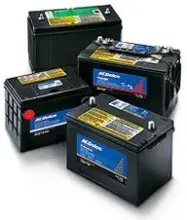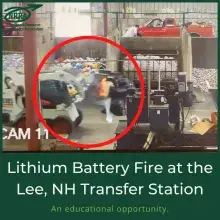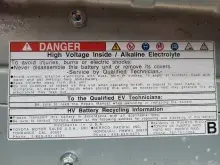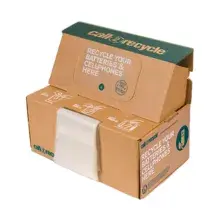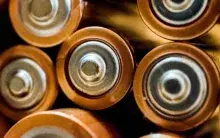Every year, fires caused by improper battery disposal cost over 1.2 billion dollars and threaten the lives of hundreds of waste, recycling, and scrap operators!
Properly disposing of your batteries saves money and lives, by lessening the chance of a fire breaking out at a facility.
In this Batteries Toolkit, you will find the basics for disposing of batteries in a video and a printable resource, several resource links for operators, resources to share with residents, and case studies.
(Video should load shortly or watch the Battery Toolkit Video on YouTube)
Need help or have a question? Reach out to NH Recycles at info@nhrecycles.org.
PRINTABLE Best Management Practices for Batteries (NHDES)
Key Takeaway: BAG individual batteries or securely TAPE the terminals to prevent accidental fires and RECYCLE all batteries!
(the only exception is single-use batteries, which can be taped and put in with regular household trash)
WHAT TO DO
Batteries that must be recycled are a danger to the environment. When it comes to battery disposal, it’s always best to play it safe. Click on the battery type below to view an image of the battery, how to properly dispose of it, and other resources for operators and residents.
Household [non-rechargeable] Batteries
Rechargeable Batteries
Button Cell Batteries
Lithium Batteries
Lead Acid Batteries
HOUSEHOLD non-rechargeable single use alkaline and carbon zinc batteries:
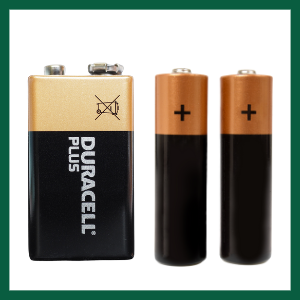
Household non-rechargeable batteries include AA, AAA, C, D and 9-volt batteries that cannot be recharged.
Tape the ends and then ok to go into the regular trash
You can recycle these batteries for free in some states (yes in Vermont, no in New Hampshire, Maine, or Massachusetts). Otherwise, you will need to pay to send in single use batteries for recycling through Call2Recycle or Waste Management.
- (Call2Recycle) Why Are Single Use Batteries Different?
- (Earth 911) How to Recycle Single-Use Batteries
RECHARGEABLE BATTERIES: DO NOT TRASH - recycle!
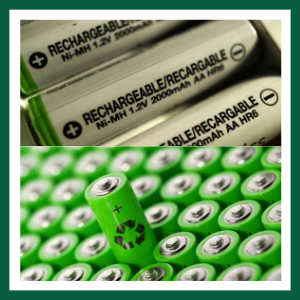 Rechargeable batteries include rechargeable household batteries, button cell batteries, and lithium-ion batteries.
Rechargeable batteries include rechargeable household batteries, button cell batteries, and lithium-ion batteries.
For operators:
Batteries should be taped over the terminals or individually bagged to prevent accidental fire.
NH Recycles' electronic recycling vendors will take batteries when they come and pick up your electronics. Their prices do vary by battery type (chemistry) and by vendor. You can also reach out to Call2Recycle, a well known battery recycler, to set up a battery recycling program if you do not yet have one.
For residents:
Bring to your local transfer station or to the following big-box stores: Lowes, Staples, Best Buy (lithium batteries), or Home Depot.
BUTTON CELL BATTERIES: DO NOT TRASH - recycle!
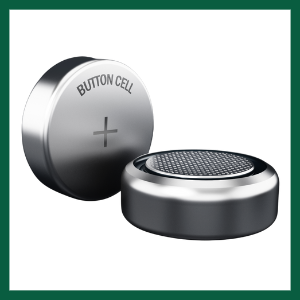 Button Cell Batteries include mercury oxide, silver oxide, and zinc air batteries.
Button Cell Batteries include mercury oxide, silver oxide, and zinc air batteries.
For operators and residents:
Batteries should be taped over the terminals or individually bagged to prevent accidental fire.
Use the same resources as "Rechargeable Batteries" above for disposal.
Button cell batteries may contain lithium or mercury, both should be kept out of the landfill!
Watch Now: How to Safely Dispose of Old Button Cell Batteries
LITHIUM POLYMER and LITHIUM ION BATTERIES: DO NOT TRASH - recycle!
In NH it is illegal for anyone to throw Lithium-Ion batteries in the trash! These batteries pose a HUGE FIRE & SAFETY HAZARD.
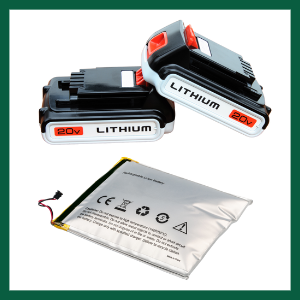 For operators:
For operators:
Batteries should be taped over the terminals or individually bagged to prevent accidental fire.
NH Recycles' electronic recycling vendors will take batteries when they come and pick up your electronics. Their prices do vary by battery type (chemistry) and by vendor. You can also reach out to Call2Recycle, a well known battery recycler, to set up a battery recycling program if you do not yet have one.
For residents:
Bag individual batteries prior to recycling. Bring them to your local transfer station or to the following big-box stores: Staples, Home Depot, or Best Buy (computers, tablets, and cellphones - these contain lithium batteries).
Additional resources:
- NH Recycles Commodity Spotlight: The boom of lithium ion batteries
- (EPA Guide) Used Lithium Ion Batteries
- (Elcan Industries) Lithium Ion Battery Recycling Process
- (Green Citizen) Lithium Ion Battery Recycling: The Complete Guide
- [VIDEO] NH Recycles: Why proper battery disposal is so important (features a lithium battery fire)
Lithium-Ion Battery Safety Campaign:
Recycled Materials Association (ReMA) and The Electrical Safety Foundation (ESF) partnered on a campaign to promote lithium-ion battery recycling. The goal of the campaign is to educate the public on how to purchase, use, and recycle lithium-ion batteries safely:
- Damaged EV Battery: Lithium-Ion Battery Safety
- First Responder Safety – How to Extinguish: Lithium-Ion Battery Safety
- First Responder Safety: Lithium-Ion Battery Safety
- How to Recycle Batteries: Lithium-Ion Battery Safety
- How to Spot Battery Problems: Lithium-Ion Battery Safety
- How to Store and Charge Batteries: Lithium-Ion Battery Safety
- Importance of Proper Recycling: Lithium-Ion Battery Safety
LEAD ACID BATTERIES: DO NOT TRASH - recycle!
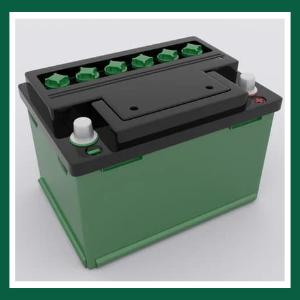 For operators:
For operators:
Proper storage, stacking, and wrapping is an important safety measure.
Here is a detailed infographic on how to stack and wrap new and used batteries on a pallet courtesy of EastPenn.
NH Recycles Spec Sheet: Lead Acid Automotive Batteries
For residents:
Bring used lead acid batteries to your transfer station, car repair shop, AutoZone, or Advanced Auto Parts.
Additional resources:
- [VIDEO] (Battery Council International) Lead Battery Recycling Process
- (Footprint Hero) 4 Easy Ways to Recycle Lead Acid Batteries
- EPA Waste & Debris Fact Sheet: Auto Batteries
RESOURCES FOR OPERATORS
- NH Recycles Household Batteries Information Sheet
- [PRINTABLE] NH Recycles Batteries Disposal Poster
- NHDES Managing My Waste: Batteries
- Call2Recycle Website
- [PRESENTATION] Call2Recycle Safety Training
- [VIDEO] Call2Recycle Battery 101 Safety Video
- (EPA Guide) Used Household Batteries
RESOURCES FOR RESIDENTS
- (NH Recycles Informational) How to properly dispose of batteries
- Find a Call2Recycle battery drop off location near you
- (EPA Guide) Used Household Batteries
- [VIDEO] (Quest TV) Recycled batteries are used to grow delicious corn
- (Consumer Technology Association) Battery and electronics site locator
HELPFUL ARTICLES
- (NY Times) Yes, You Can (and Should) Recycle Batteries. Here's How.
- (Consumer Reports) Yes, You Need to Recycle Your Old Batteries
- (Call2Recycle) The Secret Life of Batteries: What happens when batteries are recycled
CASE STUDIES
Additional Articles:
The following is a dynamic and up-to-date listing of all battery-related resources that have been created by NH Recycling.

